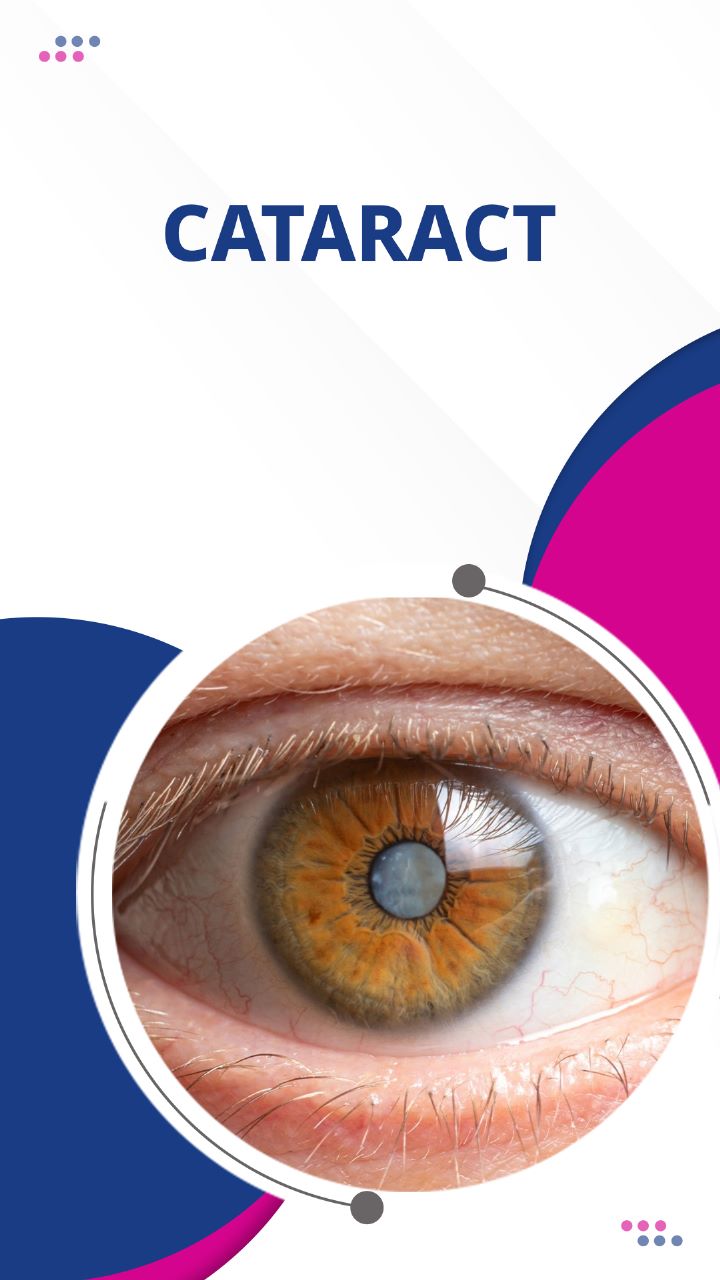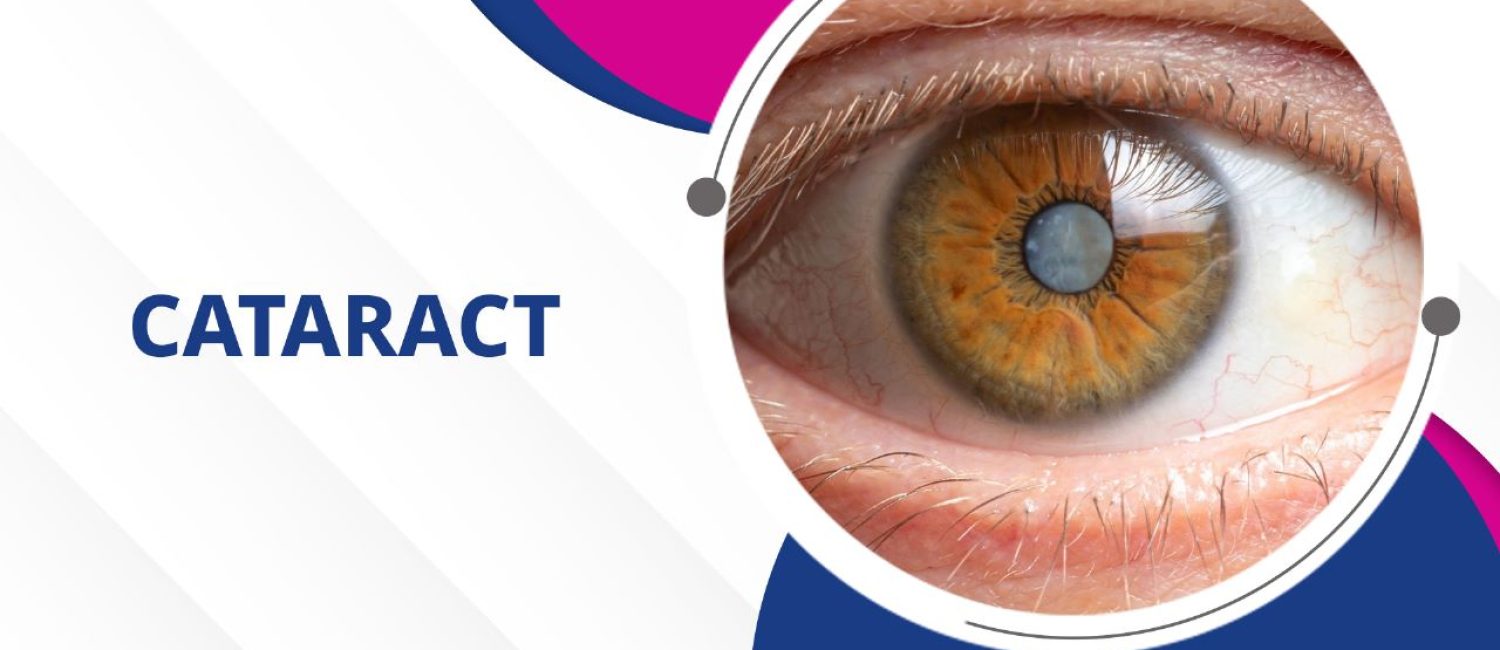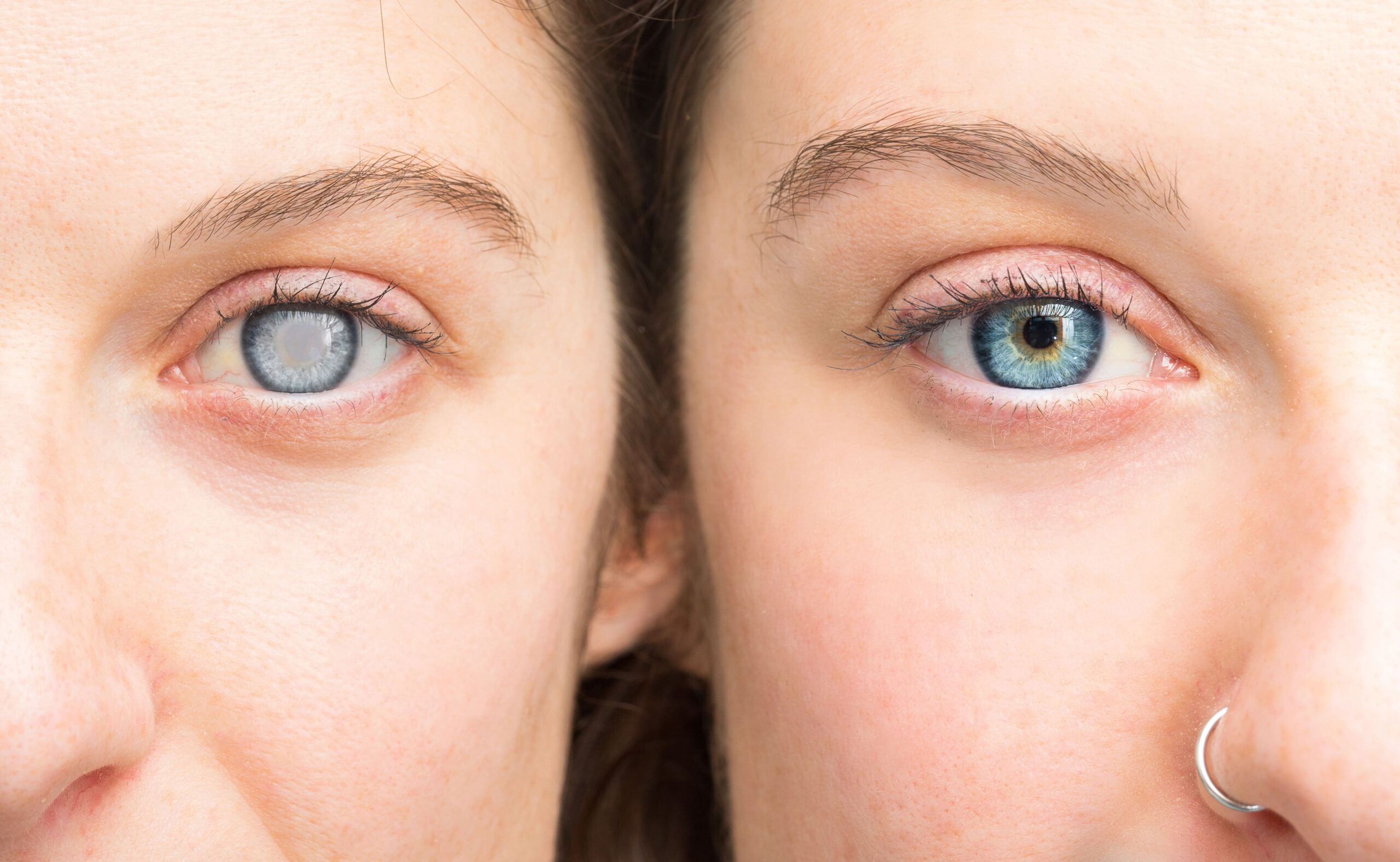

Cataract refers to the clouding of the lens in the eye, leading to impaired vision. The lens is responsible for focusing light onto the retina, allowing us to see clearly. However, as we age, proteins in the lens can clump together, forming a cataract. This clouding gradually worsens over time, causing vision to become blurry, hazy, and less vibrant.

Causes of Cataract
While aging is the primary cause of cataract, other factors can contribute to their development. These include:
- Age: The risk of developing cataract increases with age, and they are most commonly seen in individuals over the age of 60.
- Genetics: Certain genetic disorders can predispose individuals to cataract, such as Down syndrome.
- Trauma: Eye injuries or trauma can accelerate the formation of cataract.
- Medical Conditions: Diabetes, hypertension, and certain medications (such as corticosteroids) can increase the risk of cataract formation.
- Lifestyle Factors: Smoking, excessive alcohol consumption, prolonged exposure to sunlight without proper eye protection, and poor nutrition can all contribute to cataract development.
Symptoms of Cataract
- Blurred or Hazy Vision: Objects may appear cloudy or less defined.
- Sensitivity to Light: Bright lights may cause glare or discomfort.
- Reduced Colour Perception: Colours may appear faded or yellowed.
- Poor Night Vision: Difficulty seeing clearly in low-light conditions.
- Double Vision: Seeing two images instead of one.
Diagnosis of Cataract
A cataract is typically diagnosed through a comprehensive eye examination performed by an ophthalmologist. The diagnostic process may include tests like Visual acuity test, Slit-lamp examination and Retinal examination.
Treatments of Cataract
When cataract begins to interfere with daily activities and quality of life, surgical intervention is often recommended. Advanced cataract surgery which is also known as Phacoemulsification involves removing the cloudy lens and replacing it with an artificial intraocular lens (IOL). This procedure is safe, effective, and usually performed on an outpatient basis. Advanced surgical techniques, such as laser-assisted cataract surgery, are also available to enhance precision and outcomes.
Phacoemulsification
Phacoemulsification is a modern surgical technique used for cataract removal in ophthalmology. It involves the use of ultrasound energy to break up the cloudy lens (cataract) into small fragments, which are then suctioned out of the eye through a small incision. This minimally invasive procedure offers faster healing time, smaller incisions, reduced risk of complications, and improved visual outcomes compared to traditional cataract surgery techniques. An artificial intraocular lens (IOL) is typically implanted to restore clear vision. Phacoemulsification is performed under local anesthesia and has a high success rate in improving vision.

Types of Intraocular Lenses (IOLs) Available for Cataract Surgery
- Monofocal IOLs: Standard lenses providing clear vision at one distance. Glasses may still be needed for near vision or astigmatism.
- Multifocal IOLs: Enable clear vision at various distances, reducing dependence on glasses. They may cause halos or reduced contrast sensitivity.
- Toric IOLs: Correct astigmatism by having different powers in different parts of the lens. Some glasses may still be required.
- Extended Depth of Focus (EDOF) IOLs: Offer an extended range of clear vision, reducing the need for glasses for distance and intermediate vision, with some dependence for near work.
We hope this information has provided you with a better understanding of cataract, including their causes, symptoms, available treatments, potential complications, and preventive measures. For personalized advice and further assistance, please consult with an eye care professional.
Dr. Astha Jain is a highly skilled cataract surgeon practicing at PEEPAL EYE & RETINA Clinic in Chembur. With extensive experience in the field, Dr. Astha Jain is dedicated to providing exceptional eye care services to her patients. She specializes in cataract surgery, a procedure that involves removing clouded lenses and replacing them with artificial lenses to restore clear vision. Dr. Astha Jain’s expertise, coupled with her compassionate approach, ensures that her patients receive the best possible treatment and care for their cataract-related concerns.
